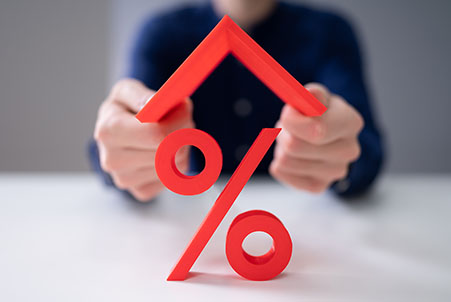The mortgage process is full of unfamiliar terms for most buyers. Closing. PMI. Appraisal. Underwriting. The list goes on and each, unfortunately, does require a bit of explaining to better understand. In fact, we have done another blog on Mortgage Jargon. But one thing we haven’t fully touched on is Mortgage Points. So, if you’ve ever found yourself asking, “What are mortgage points?” well, hopefully, this article will answer that question for you. And once you have a better understanding of the process, you should have more confidence during a real estate transaction.
Points Are Good
Points are a good thing. Especially if you’re in a position to take advantage of them. Basically, one point is 1% of the loan amount. So, if you’re borrowing $100,000, one mortgage point would be $1,000. Two points is $2,000. Three points, $3,000, and so on. You can use points as a tradeoff for interest on your mortgage. What does that mean? It means when you buy points, you’ll receive a slightly lower interest rate on your mortgage than if you didn’t buy points. To be clear, each mortgage point you buy doesn’t necessarily equal one full interest percent saved. It may take two points to lower your interest rate .25%. Regardless, while points will cost you more at closing, they’ll actually save you money in interest during the life of the loan. A variety of factors play into this, so consulting with your mortgage loan originator would be the best way to get a clearer picture of what this looks like for you.
Paid at Closing
As we mentioned above, buying points will cost you most at closing, because they add to your closing costs. So, if you bought five points on a $100,000 mortgage, you’d owe an additional $5,000 at closing. Again, you’ll receive a reduced interest rate on the mortgage, saving you money over time.
Points Work Both Ways
One thing most people don’t know about points is that they work both ways. Meaning, the lender can offer you a lender’s credit to help lower your closing costs in exchange for a slightly higher interest rate. It’s simply another tradeoff: lower closing costs for a slightly higher monthly payment.
What’s Right for You?
This wholly depends on your own financial situation. If you are in a position that allows you to purchase points in exchange for paying less interest, then buying points is a great option – one that will save you money over time. But, if you can’t afford the points and need help with closing costs, accepting a lender's credit in exchange for a slightly higher interest rate can benefit you. Also, nothing says you have to buy points or take a lender’s credit.
Well, that all seems clear enough, right? Mortgage points really aren’t that complicated and can be incredibly beneficial to homebuyers. And whether or not you should buy them, again depends on your financial situation.
If you do have any more questions about mortgage points, or want to know how you can lock in an interest rate today, please contact one of our Guardian Mortgage Loan Originators.

